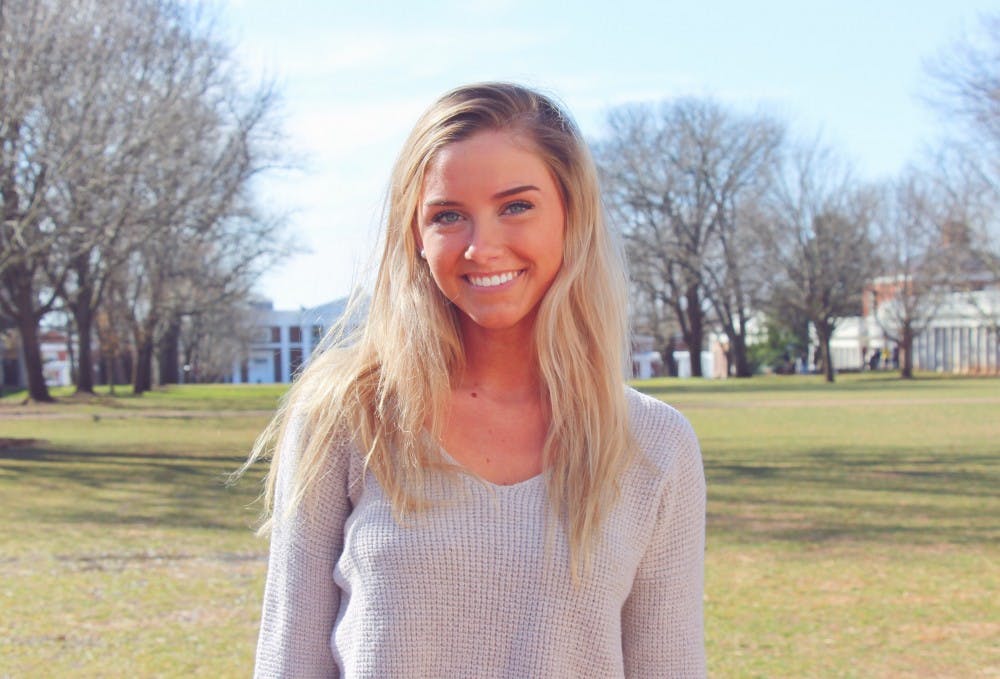The sun beats hotter in Preston County, W.Va., almost to the point where you would rather spend your time inside. I’ve gone here each summer for the past three years on a service trip with my parish from home, and every time I go, my feelings about the place are further complicated.
I went to a parochial school from kindergarten through sixth grade, and when I left I remained involved in the parish’s youth ministry. One of the youth ministry’s biggest programs is their annual service trip to West Virginia, in which high school students devote a week of their summer to assisting on a home repair project.
A huge flood in 1985 devastated the community of Preston County, causing serious damage to homes and even wiping some out altogether. Residents of the area are still grappling with the aftermath of the flood, and our aim is to improve their communities.
The projects involve all sorts of endeavors, ranging from underpinning a trailer to fixing a broken pipe. All of our service projects place a strong degree of responsibility and perhaps presumptuous expectations of expertise in manual labor on a collection of young adults. The families whose homes we work on submit requests for assistance through their local parish in Preston County which, through communication with ours in New Jersey, assigns work groups to each that passes examination.
The region is incredibly beautiful. Mountains encircle you from a distance, the roads are narrow and winding and rivers and creeks run like veins through otherwise seamless settlements of civilization. The local communities run cohesively and self-sufficiently, seemingly untouched by the waves of urbanization and mass commercialization that have irrevocably altered the landscape of the places I call home in New Jersey and now also Virginia. There is a Walmart in the nearby town of Kingwood, the only superstore of its kind within a 20-mile radius. Most needs are satisfied by the small local businesses in town.
After the initial panic of no cellular connection dissipates, it’s easy to fall into rhythm with the lifestyle or, at least, whatever modified appropriation of the Appalachian “lifestyle” my peers and I would adopt for the week. Time moves slower, electronics are all but extraneous and most, if not all, items you need are available for under $5 at the family drugstore. When I go, I notice an increased sense of hospitality, even in a brief encounter with a cashier at the gas station.
I have especially fond memories with the children of the families whose homes we worked on during the trips — from french-braiding tutorials to driving the family ATVs around the backyard. The adults are usually gracious and kind to us as well. We often receive unsolicited help from multiple members of the families we serve. It is clear that what these families lack, in most cases, is not the raw ability to repair their homes but the physical resources. Either way, it feels good to contribute to something meaningful. Largely, my experiences have been positive. For all its virtue, though, Preston County is not free from vice.
Economic depletion stifles the mobility of families caught in the cycle of Appalachian poverty. Confederate flags hang from the front porches of houses and private businesses that we drive past. One project team even stumbled upon a room full of Nazi paraphernalia in the house they were assigned. They did not return to this work site following the discovery. The father of another family whose roof we fixed flexed a tattoo of a Grim Reaper-like figure emblazoned with a Confederate symbol — a distinctive feature I didn’t notice until our last day of work. Of course, this is not to say that regressive or resentful ideology is endemic in the people of this region of West Virginia, nor that it necessarily arises out of poverty or strife. Simply, this was my first real encounter with such perspectives, and it left me feeling conflicted and confused.
What moral values underpin one’s allegiance to such problematic symbols and ideals? Do these symbols mean the same thing to the individuals who promote them as they mean to the people who disavow them? Is it still my obligation to offer the help I can give to individuals who harbor such resentment and marked bias? Furthermore, I wonder if my services would have been received as warmly if I was of a different race.
One of the adult chaperones on my project team elicited an answer from an elderly man whose home we worked to repair. Acknowledging the “United We Stand” sign plastered on his home garage, the owner responded, “It’s our heritage. All of these signs and sayings and flags. It’s my ancestors.” He was also gesturing to the Confederate flag flying from a pole in his front lawn.
Even though certain signs and symbols like the ones I’ve mentioned are widely agreed upon to represent something negative or hateful, they can clearly hold a different meaning to those who support them. Perhaps the problem lies in a lack of educational resources or socioeconomic frustration. Perhaps it lies most principally in a loyal commitment to a family or heritage, regardless of dark histories. The question is not whether support for such ideologies should be condoned or criticized. It’s about understanding where these opposed meanings come from in the first place.
I am not planning to return this summer. I plan to commit myself to service projects in my more immediate community. But questions like the ones I raised earlier are still ones I grapple with today — and they’re certainly still ones worth asking.
Maeve Quinn is a Life Columnist for The Cavalier Daily. She can be reached at life@cavalierdaily.com.







